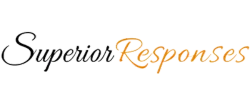In every interaction within a professional environment, especially through email, the language you use reflects your competence and attention to detail. A simple “will do” might sometimes suffice, but often, a more crafted response is necessary to demonstrate your commitment and respect for the recipient.
Below, I’ll share some polished alternatives to the straightforward “I will do that,” enhancing your communication’s impact and professionalism.
Contents
- 1 Neutrally Professional Ways To Say “I Will Do That”
- 2 Impressive Ways To Say “I Will Do That” That Will Make an Impact On Them
- 3 Professional Ways Expressing Responsibility and Reliability
- 4 Sentences Considering Both Time Frame And Workload
- 5 Phrases Conveying Confidence Without Overcommitting
- 6 Phrases That Enhance Customer Trust And Satisfaction
- 7 Effective Sentences for Follow-Up Emails
- 8 Avoid These Informal or Unprofessional Phrases
- 9 Questions To Ask That Will Show Them You’re Responsible
- 10 Gauge The Level of Formality and Context
Neutrally Professional Ways To Say “I Will Do That”
1. “I’ll begin working on that right away.”
2. “It will be completed shortly.”
3. “I’ll handle it at my best.”
4. “Consider it done; I’ll report back when it’s complete.”
5. “I know what needs to be done and will address it immediately.”
6. “I will do my best to ensure it is done according to your instructions.”
7. “I’m lining this up on my to-do list.”
The way we talk at work can really affect how well we and our teams do. Using direct and reassuring language can make a big difference. It makes sure everyone knows what’s happening and that work is on track.
Impressive Ways To Say “I Will Do That” That Will Make an Impact On Them
1. “I will personally attend to this matter and ensure it’s handled promptly.”
2. “I’ll execute this assignment with my full attention.”
3. “I’ve committed myself to accomplishing this quickly and effectively.”
4. “This is now my responsibility; I’ll see it through.”
5. “I’m on it, you’ll see the results soon.”
6. “I’m your point person on this, no worries.”
These sentences show some strong examples of how to assure them that you’re not just going to do the job, but you’re going to do it well and they don’t need to worry. This can be very impressive in a workplace setting and helps build your reputation as a go-getter.
SUGGESTED: Email Like Executives – 25 Classy Phrases Better Than ‘Noted’
Professional Ways Expressing Responsibility and Reliability
1. “I’ll address this task with clarity and ensure it’s in your inbox by [The Day].”
2. “Consider it done; I’ll ensure the responsibilities are met by the agreed deadline.”
3. “This project is my priority; I’ll update you regularly until completion.”
4. “I’ll spearhead this to ensure we’re ahead of schedule.”
5. “You’ve got my full attention on this matter.”
These sentences show that you are a professional who cares about your work and the people you work with. This is good because it helps everyone be on the same page and builds trust.

Sentences Considering Both Time Frame And Workload
1. “It’s a busy week, but I’ll prioritize this and maintain transparency about my progress.”
2. “Despite the full plate, I won’t let it slip; your request is done by the agreed date.”
3. “I can take this on, but let’s define a time frame that works for us both to prevent any rush.”
4. “I’ll manage this task despite the current workload, just need a realistic time frame to get it done.”
The sentences are great examples of how to talk about work and deadlines in a clear and respectful way. You’re effectively balancing your current responsibilities with new tasks, which is a sign of good management and reliability.
Phrases Conveying Confidence Without Overcommitting
1. “You can trust me to maintain a careful, realistic outlook on this project.”
2. “My approach will be careful to ensure I’m not overcommitting our resources.”
3. “I’m confident I can handle this, and I’ll ensure everything is balanced.”
4. “It’s on my radar, and I’ll make sure to keep a steady pace.”
These phrases make it clear you are aware of your limits and are focusing on managing expectations. For instance, when you say you’ll keep a steady pace, it tells them you’re mindful of not rushing, which could lead to mistakes.
SUGGESTED: Stop Saying “Thank You For Keeping Me Posted” – Try These 25
Phrases That Enhance Customer Trust And Satisfaction
1. “Leave it with me—I won’t disappoint.”
2. “I’m dedicated to ensuring everything goes smoothly.”
3. “Rest assured, it’s in good hands.”
4. “I’ll take responsibility for this, you can relax.”
Each of these sentences makes a customer believe that the person they’re talking to will handle their issue personally and responsibly. This not only soothes any worries the customer might have but also boosts their confidence in the service.
Effective Sentences for Follow-Up Emails
1. “Following up on our recent discussion, could you please provide the .….?”
2. “It’s urgent that I tell you about the updates to your request. Here’s where things stand: …”
3. “Given that time is of the essence, I’ll highly appreciate if you …”
4. “Sorry for the inconvenience, but I just want to ask …”
Avoid These Informal or Unprofessional Phrases
When Starting an email, it’s crucial to set the right tone from the get-go. Rather than kicking off with casual Greetings like “Hey” or “Hiya,” opt for a more professional approach. “Good morning,” “Good afternoon,” or “Good evening” are preferable as they reflect a respectful and professional setting.
Moving beyond the introduction, when it comes to confirming tasks or responsibilities, steer clear of expressions that may seem too casual or even dismissive.
SUGGESTED: Sound More Professional – 15 Alternatives To ‘No Worries’
Phrases such as “Sure thing,” “Yep,” or “On it” might come across as too laid-back or unprofessional in a business context. Instead, articulate your commitment with statements like “I will ensure this is handled promptly” or “Consider it done,” which convey dedication and reliability.

Questions To Ask That Will Show Them You’re Responsible
1. “Could you please know how I should proceed with ___?”
2. “What do you want me to focus on first in ___?”
3. “Could I have a deadline to ensure time management for ___?”
4. “Can I get some clarification to know how to tackle __________ better?”
Gauge The Level of Formality and Context
When crafting emails in a professional setting, the level of formality you adopt is often dictated by both the relationship with the recipient and the context of your interaction.
A formal style is typically expected and used in more conservative industries, like banking, law, finance, etc.
Conversely, in newer industries with more relaxed corporate cultures, the tone can be dialed back. In such environments, while it’s still important to maintain a polite and respectful manner, the tone can be more informal. For example, instead of saying, “I shall attend to this at the earliest,” you might simply say, “I’m on it.”
Consider who you are addressing: is it a colleague, a supervisor, or a client? Each requires a slightly different level of formality. For example, you might be more informal with a colleague you know well, while communications with a supervisor or client should align more closely with established company etiquette and standards.
Related Posts You May Like To Read:

